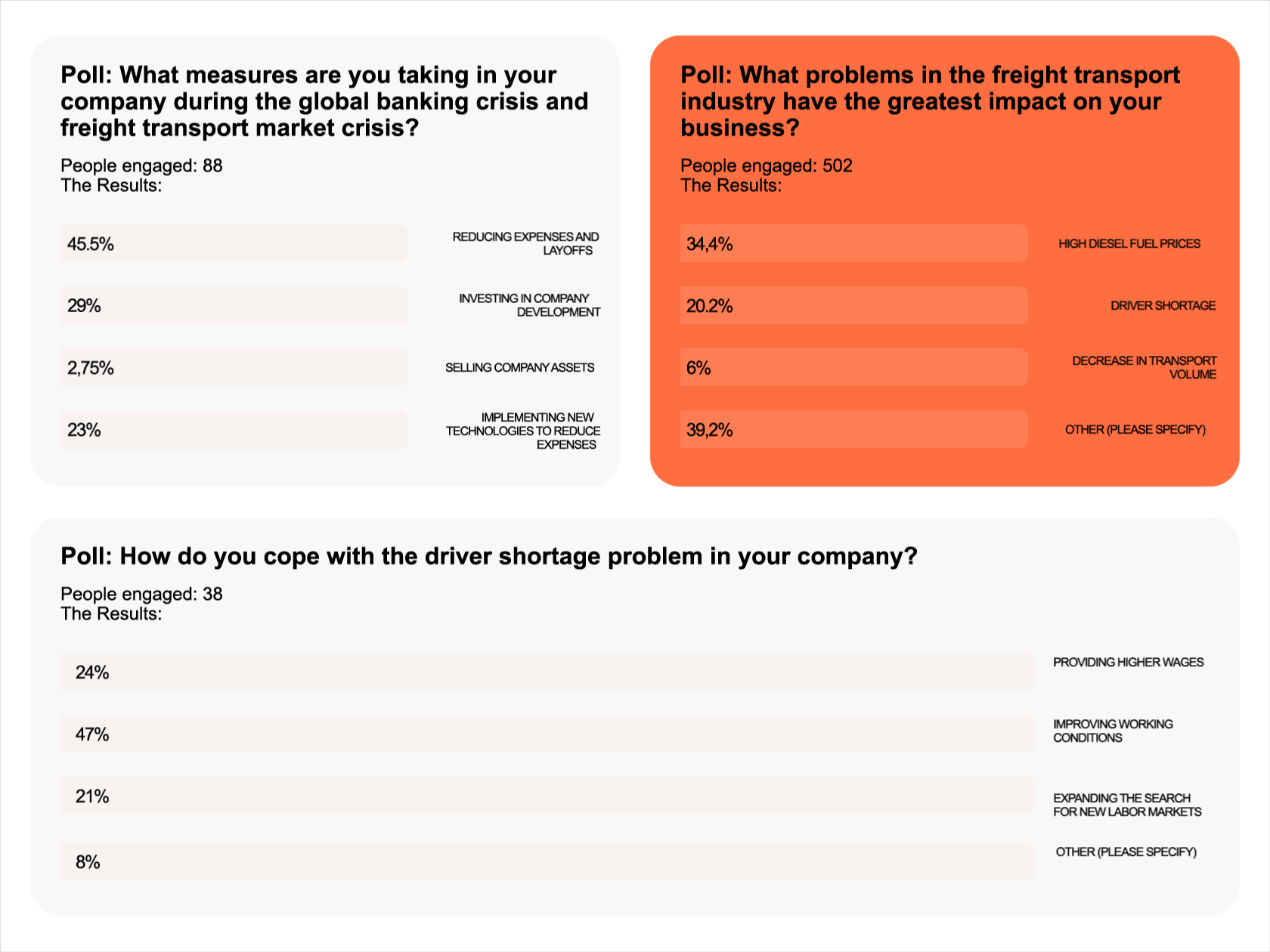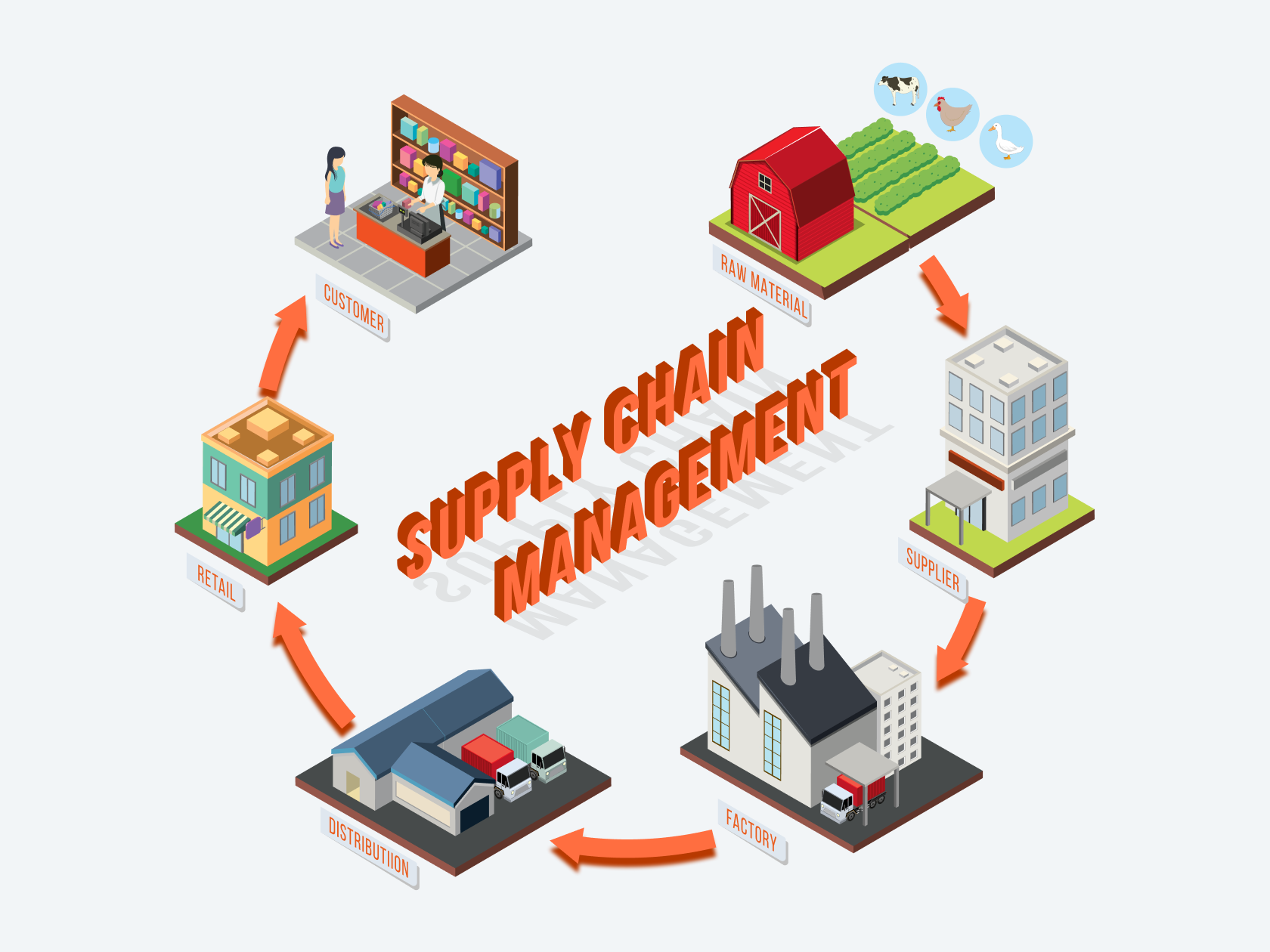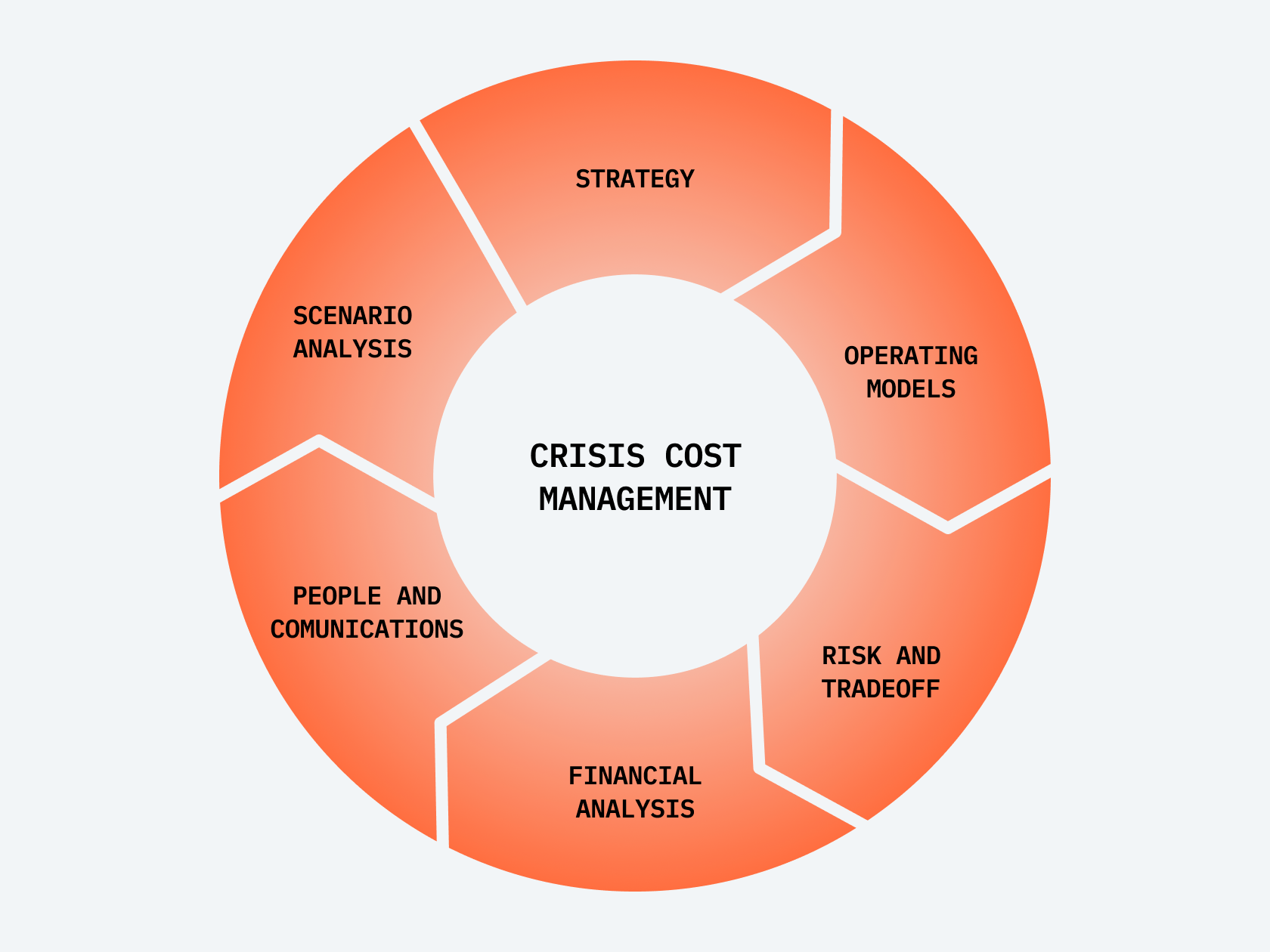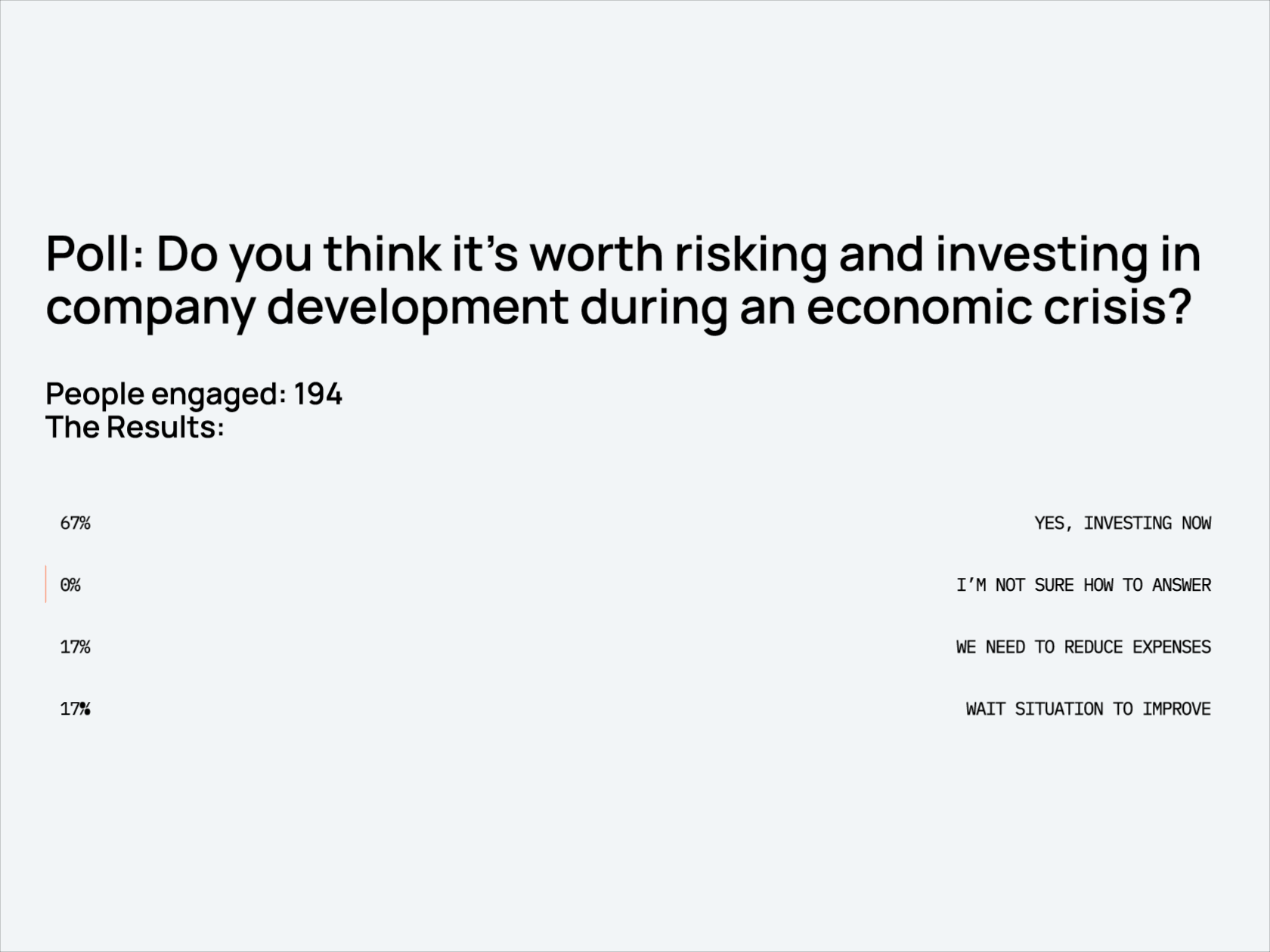The global economy has experienced many crises, but the vast majority of them did not last too long to make a significant impact on the vast majority of business industries. However, the crisis triggered by the COVID-19 pandemic in 2020 could not go unnoticed. Unfavorable conditions, such as the trade war between China and the United States, political instability in progressive countries, and, of course, the Russian aggression against Ukraine, have called into question the existence of many businesses.
And now, even when the pandemic is over, the prospects for those who managed to stay afloat are still uncertain. In particular, we are talking about companies representing the cargo transportation industry – such problems as high prices for diesel fuel, lack of auto parts, as well as problems with ensuring competitive wages due to inflation significantly hinder its development today. Let's look at these problems in detail and find out how they can be dealt with.
Are The US Markets at Risk of Another Banking Crisis?
Even though the US has the highest GDP in the world ($70,249, according to Worlddata), this still did not save the country from the negative consequences of the global banking crisis. To some extent, this was caused by the increase in interest rates (due to inflation) over the past year. In particular, the Silicon Valley Bank had to part with some of its long-term equity investments to enable the majority of its large clients to withdraw cash. The bank suffered significant losses and eventually went bankrupt. A similar fate befell some other major US banks.
This pathetic situation, in turn, imposed certain risks on the existence of many businesses, hindering both their further development and maintaining their former scale.
Overview of The Market of Transport Services and Trends in Cargo Transportation
The situation with the global market seems to be clear, but what can be said about the market of transport services?
Definition of "market bottom"
Let's start with a definition of a term that will help you better understand the situation. So, the market bottom is called the minimum value of the price in the specific market for a fixed time period.
The current state of the transportation market
Now we propose to refer to the independent FreighWaves research dated by April 2023. Briefly, it says that in the first quarter, the price of stakes in the transportation market decreased due to a significant difference between supply and demand. This led to the bankruptcy of many transport companies. This means that there will be less jobs, and the struggle for qualified personnel will become more and more fierce. Thus, many companies (in particular those who cannot constantly increase the salaries of their drivers) will face critical driver shortage.
The second quarter also started with negative forecasts, especially for maritime imports, and unfortunately, these predictions turned out to be correct.

As for expectations for the third quarter, they are even worse. Therefore, analysts have every reason to believe that this year, the transport services sector will reach its bottom, after which positive dynamics will follow in its growth.
Let’s consider the answers to the question: “How do you cope with the driver shortage problem in your company?”
Reliable, knowledgeable drivers are the lifeblood of every truck line. I’ve been in the industry for over 50 years, can’t recall a time when a trucking company would turn away a competent driver with a clean abstract. I worked for several companies that didn’t get it right, and they had a constant turnover of drivers, and their equipment showed it. - Corey J., Head of the shipping department
I’m not in charge of it, but they basically put out advertisements, as well as evaluate and test drivers and then train them. - Steven M., Accountant at a transportation company
I no longer drive commercially, so it doesn’t matter. But drivers really have no way of coping with it other than doing what they can to deliver as soon as possible because it’s just on to the next load. But more miles always mean more money. - Tyler F., Truck Driver
The Supply Chain Crisis: What Is Behind It and What To Do About It
When it comes to the supply chain crisis 2023, the problem is global and not limited to the transport services sector. There is also no single reason for this: here, we can blame both the lack of competent coordination in lean production, the lack of qualified personnel, the shortage of sea containers and spare parts, as well as the high volatility of the difference between supply and demand.
If we add to all of the above regular natural disasters and the three-year COVID-19 pandemic (or rather, the restrictions associated with it), the inevitability of this phenomenon becomes clear. The catalyst for the global supply chain crisis was the invasion of the Russian Federation into the territory of the sovereign state of Ukraine. So isn't this the moment to rethink your well-established business processes and start innovating? Most likely, this is the lifeline.
Why Are There Supply Chain Problems?
What are the most common challenges in the supply chain sector today? Let’s overview each of them.

Lack of personnel
Unfortunately, for many companies, especially those that grow, finding qualified personnel and, at the same, time offering them a decent salary is not an easy thing. This situation, in turn, may complicate the procedure for expanding the staff.
Lack of warehouses
The well-established freight transport infrastructure in many countries becomes obsolete, and thus, may require major optimization. If it is left in its current state, the cost of cargo shipping will gradually increase.
High expenses on fuel
Since there will be no transport services sector without fuel, this item of expenditure is mandatory. At the same time, the rapid rise in fuel prices may lead companies to demand reduction due to the need to constantly increase the price of their services.
Cyber threats
Even though more and more processes are transferred to the digital plane, the risks associated with the leakage of business data increase. In some cases, this entails a loss of reputation and, in some cases, the complete liquidation of companies.
Regulatory compliance
Depending on the complexity of the services provided by a particular company and local regulations, ensuring regulatory compliance can be time, money, and effort intensive.

Now, let’s check the answers to the question: “What problems in the freight transport industry have the greatest impact on your business?” that we posted on Quora.
Freight cost is cyclical and in tandem with the inflation cycles. Namely, If the consumer price index rises, so goes the freight cost. So plan ahead and act accordingly, in the sense that you should ship your cargo in advance should there be a predictive rise in consumer price/inflation and vice versa. - Michael R., Owner of a transportation company
There are a number of problems in the freight transport industry that have a significant impact on businesses, high fuel costs, poorly-organized freight transport infrastructure, labor shortages, cyberattacks, industry regulations, and so on. - Sean K., Logistics Expert
How Can A Logistics Company Handle The Situation Effectively?
Most of the above problems are external and do not depend on how the processes are organized within a particular company from the transport services sector. Therefore, if you cannot influence the circumstances around you, you just need to find out how to adapt to them. That is, to optimize your internal business processes for them – for example, through automation and the introduction of advanced technologies.
Cutting Costs in The Current Crisis: Is Now The Right Time?
The first conclusion that companies come to during a crisis, regardless of their belonging to a particular business sector, is to cut costs. However, to achieve this reduction, they have to take a number of measures that can entail, albeit one-time, but rather significant costs. Therefore, it is better not to ask yourself whether it is worth cutting costs but to understand how comparable this cost reduction will be with one-time optimization investments.

How Can Logistics Companies Cut Costs?
So, how can you cut your expenses? Let’s take a look at the most promising option – to reduce the cost of operating a truck.
Lower truck prices give supply chains an opportunity to cut costs
Truck maintenance is often one of the main items of expenditure. And if it is impossible to influence the cost of fuel, these costs can be optimized in favor of transport companies. Here we are talking about finding cheaper suppliers of auto parts, as well as optimizing supply chains, which will entail less wear and tear on those parts that are already in operation.
What are the benefits of minimizing supply chain costs?
By deciding to optimize supply chains, you have the opportunity to create an internal factor influencing the global economic crisis. By doing so, your business will be able to overcome these challenges, and thus, it will be ready for the booming market.
Is Investing During A Crisis or Recession A Good Idea?
While investing during recession can be a risky decision due to reduced customer demand and tougher competition, it also opens up new opportunities for continued growth and long-term success.
For example, you can enter into a partnership with another company on more favorable terms or purchase the resources you need at a reduced price. In general, the reasonability for investing should be backed up by comprehensive analytical research that will determine both positive and negative outcomes specifically for your business.

Where to invest in supply chain issues?
There is no one-size-fits-all answer to this question: the fact is that you often have to invest where you have problems and bottlenecks. Usually, these are fuel costs, outdated infrastructure, shortage of qualified specialists, cyber threats, and non-compliance with trucking industry standards – in general, everything that we wrote about in the previous paragraphs.
Now, let's turn to the experience and opinions of people we asked on Quora – what do they think about investing during the global crisis?
You invest in a goal, an expected END, such as traveling from point A to point B. You don’t stop driving because of circumstances. You just have to adapt to the environment. - Jacob N., CEO
During the global crisis, companies can give you an opportunity to buy their stocks at cheap/discount prices. If they are really growth-making and profit-making companies without any legal litigation and hindrances, never miss the opportunity. - Richard A., CFO
Investing in company development during an economic crisis can be a risky decision, as economic downturns can lead to reduced consumer demand, financial uncertainty, and other challenges that can impact the success of a business. However, there are also opportunities that can arise during times of crisis. For example, during an economic crisis, some businesses may be able to acquire other companies at a lower cost or negotiate better deals with suppliers. Additionally, some industries may experience increased demand during a crisis, such as healthcare, technology, and e-commerce. Therefore, it's important to carefully evaluate the risks and opportunities before making any investment decisions. - Angela D., Expert on Financial Analytics
You can invest if you can afford it and if you have done in-depth research on the plan and concept being developed. - Thomas V., CEO
Inflation is always caused by governments, which create an undue supply of fiat money. This leads to increased prices and depreciation of the currency. So, to answer this question, just watch the trend of M2 (money supply) to see what’s coming next. - Karen K., Stock Trader
Investing in company development during an economic crisis can carry both risks and potential opportunities. Thus, before making a decision, I propose you consider some factors, such as:
- long-term perspectives caused by investing in new directions/bottlenecks (Does it contribute to the company’s stability? Does it ensure a competitive advantage? Does it improve the company’s ability to adapt to changing market conditions?)
- market demand for the products or services offered by the company
- financial stability – the company’s cash flow, debt levels, and ability to sustain operations during challenging times
- competitive advantage and the company’s ability to differentiate itself from competitors (through unique offerings, strong brand recognition, loyal customer bases, or innovative technologies)
- valuation and potential returns on investment (if they outweigh the associated risks or not)
- risk mitigation – maybe, it’s worth spreading your investments across different sectors and asset classes
- professional advice from qualified financial advisors or investment professionals
- Boris H., Expert on International Economics
Final Thoughts
We hope that we have shed light on the current situation and now you have decided how to reduce shipping cost and what means to use for this. In particular, you should think about automating your internal processes, which is achievable through the implementation of transport management systems (TMS) and other solutions for the transport industry. If you are looking for a team that will take responsibility for the development of such software solutions, feel free to contact us.


